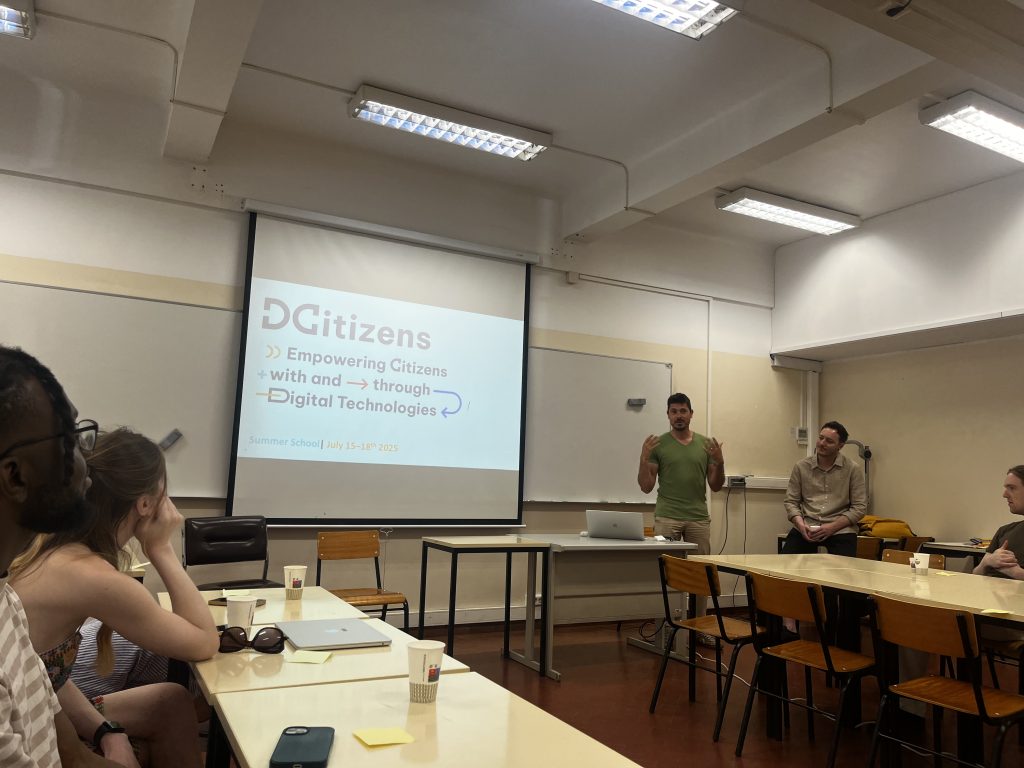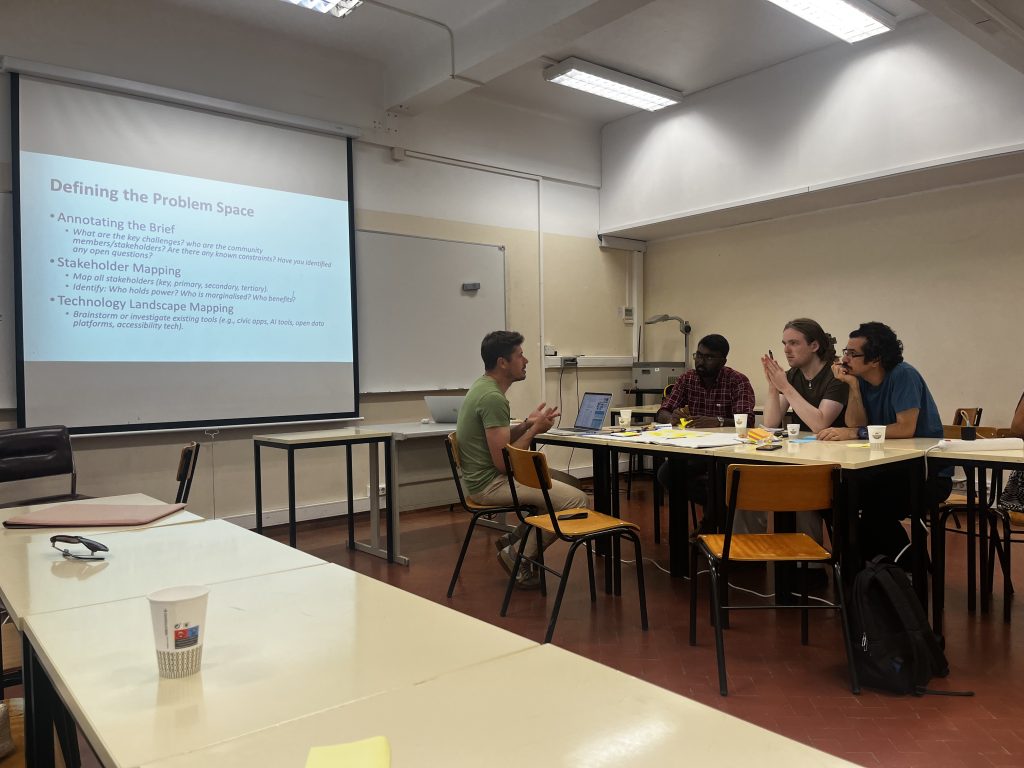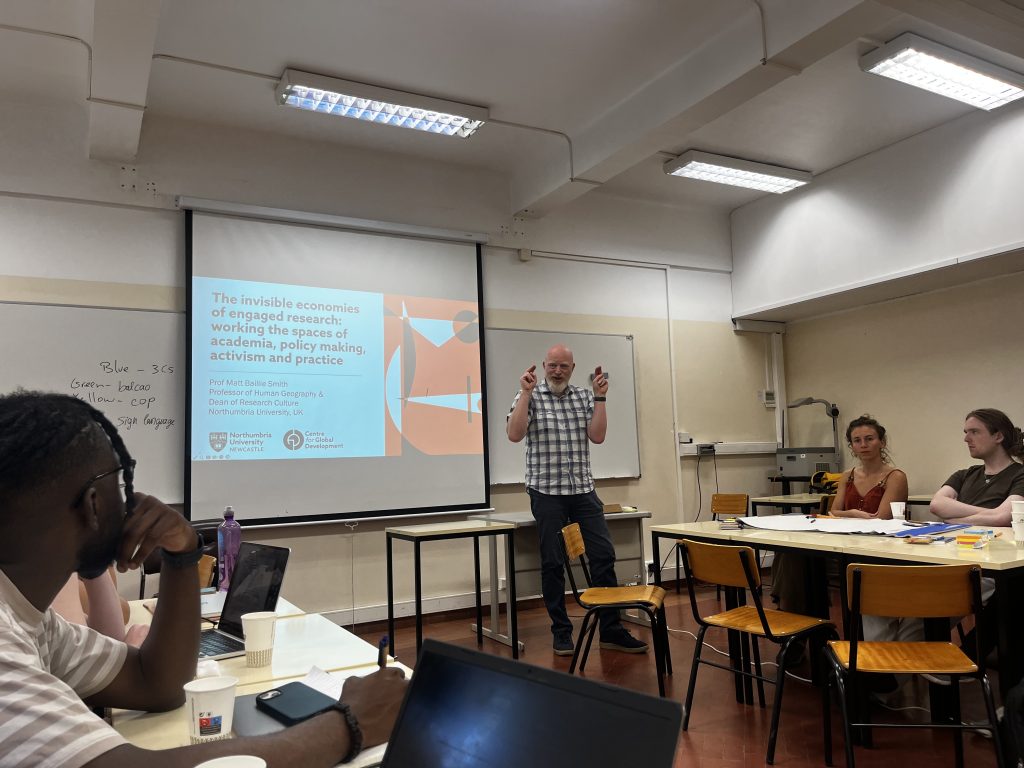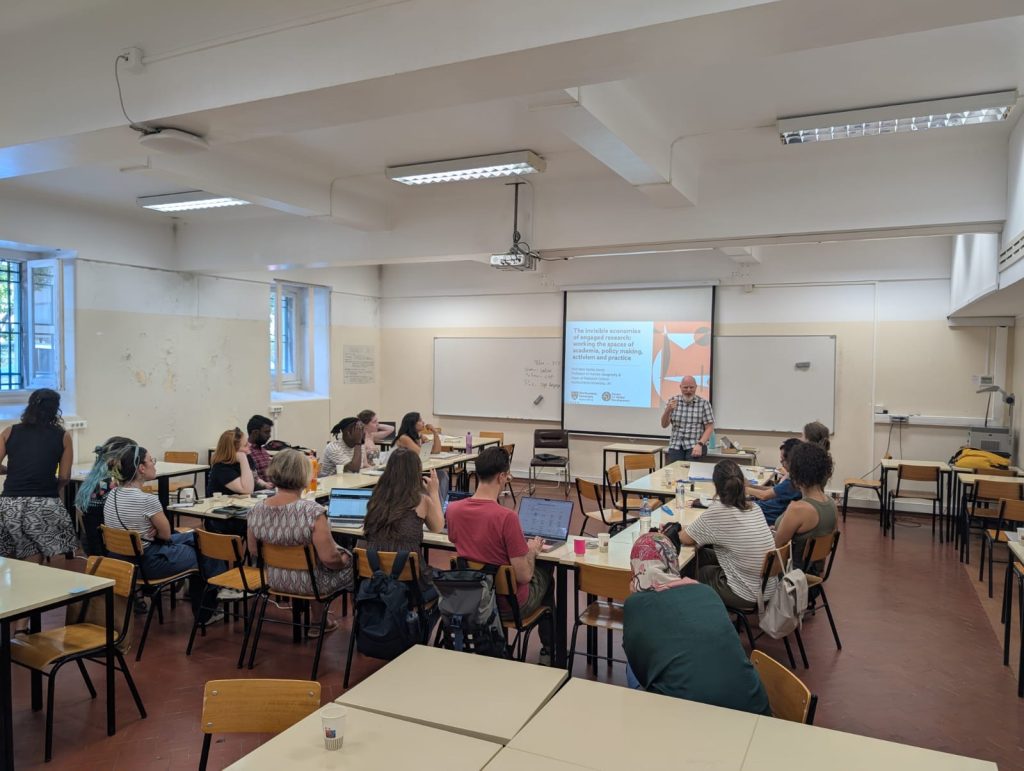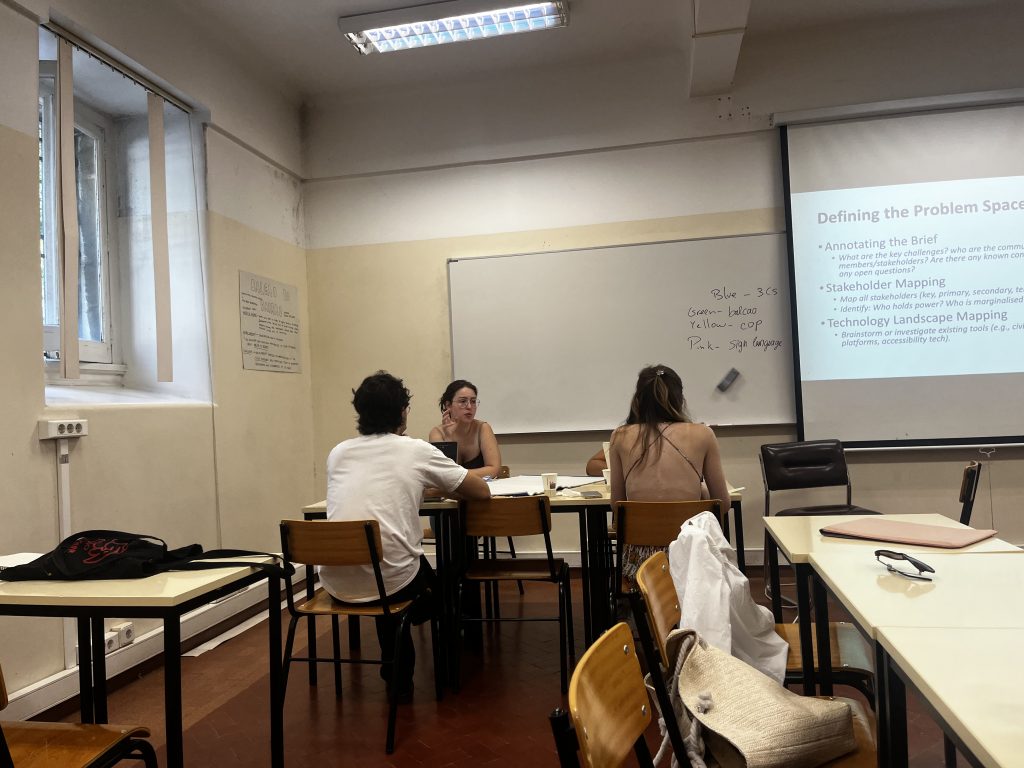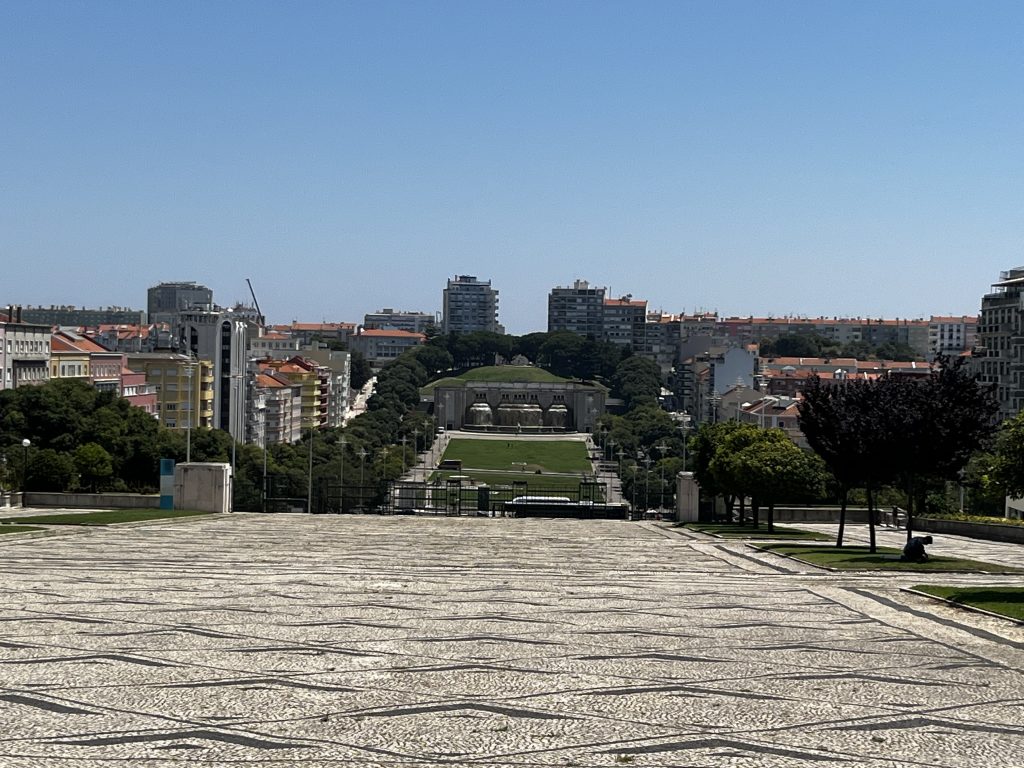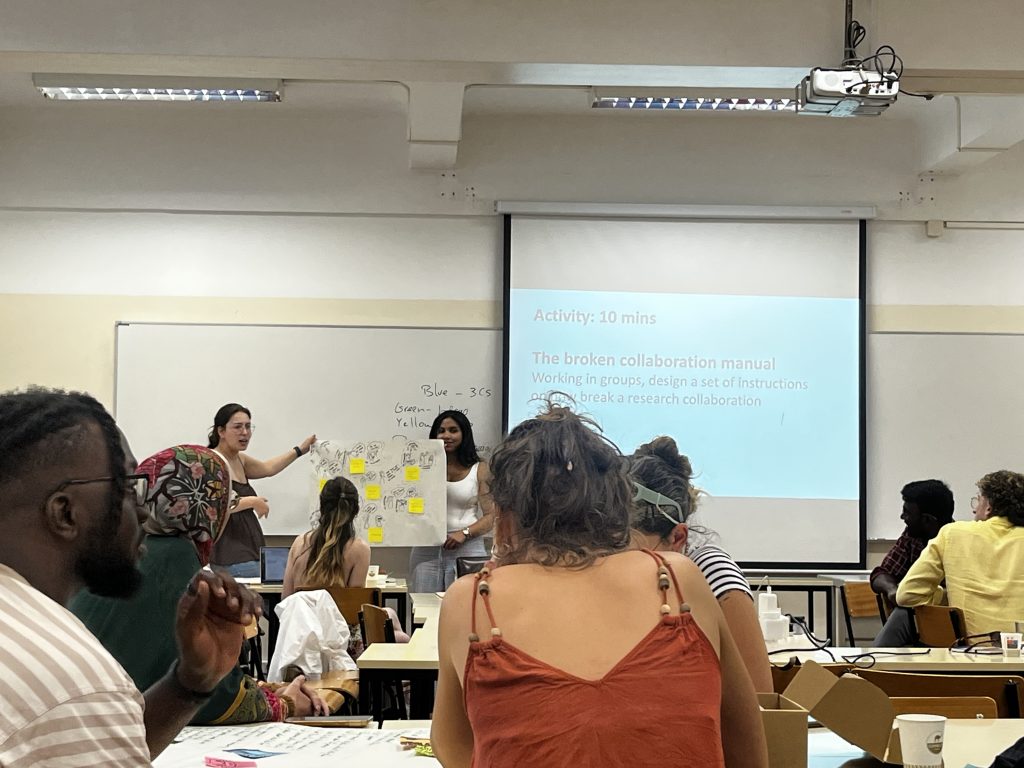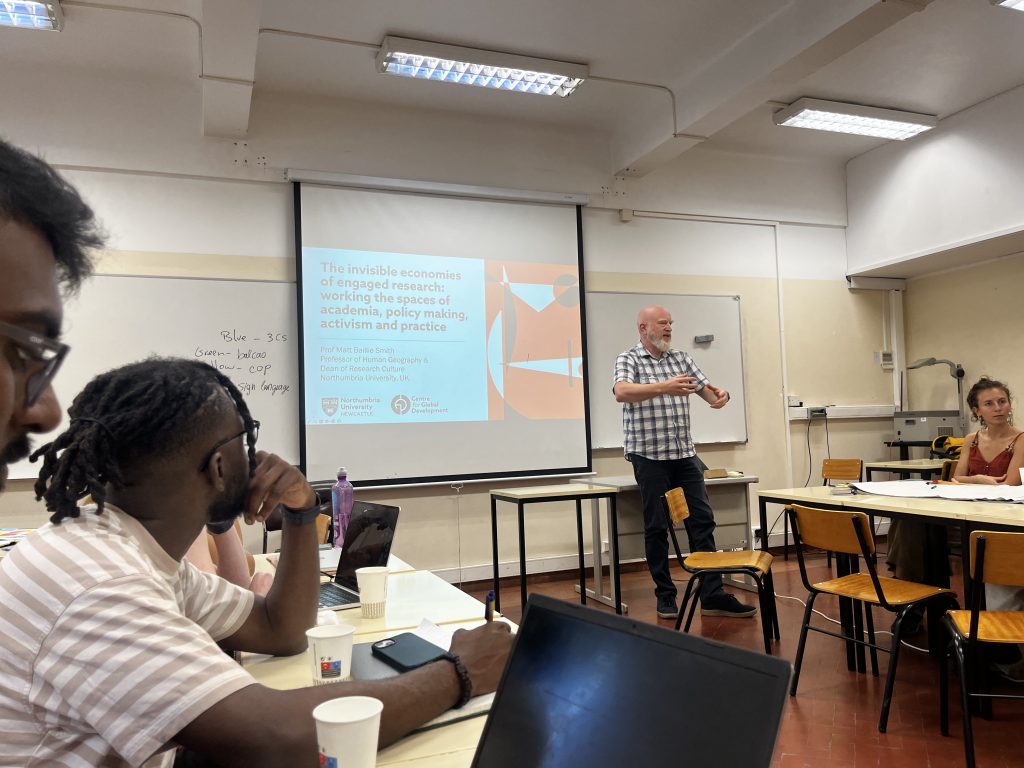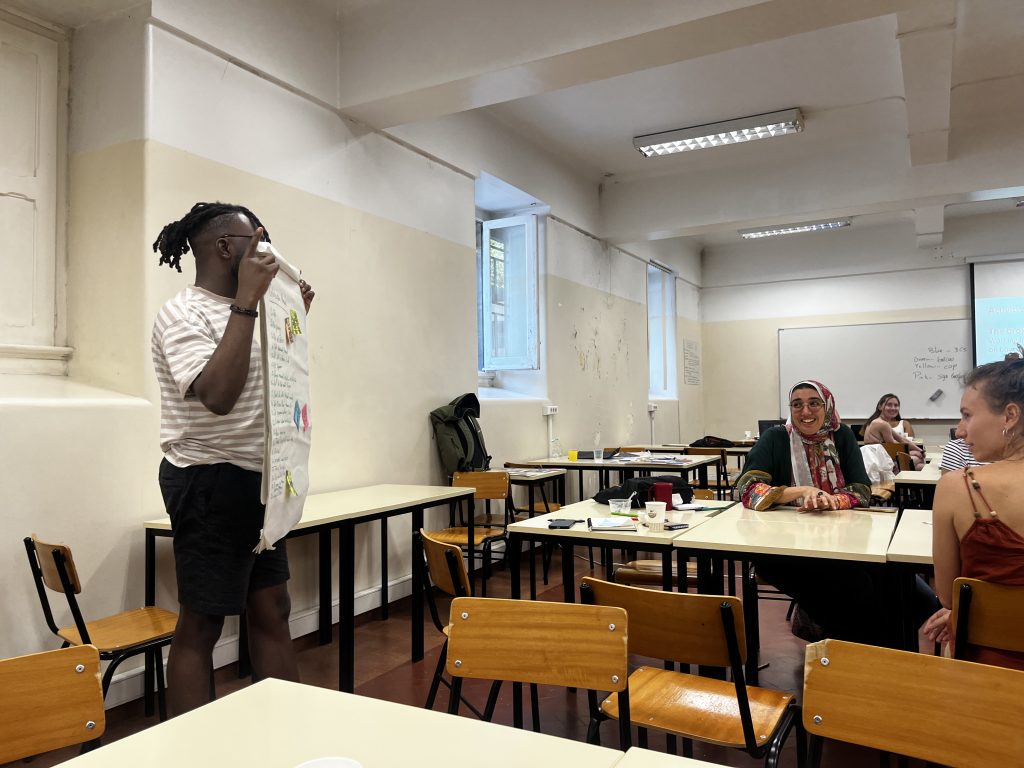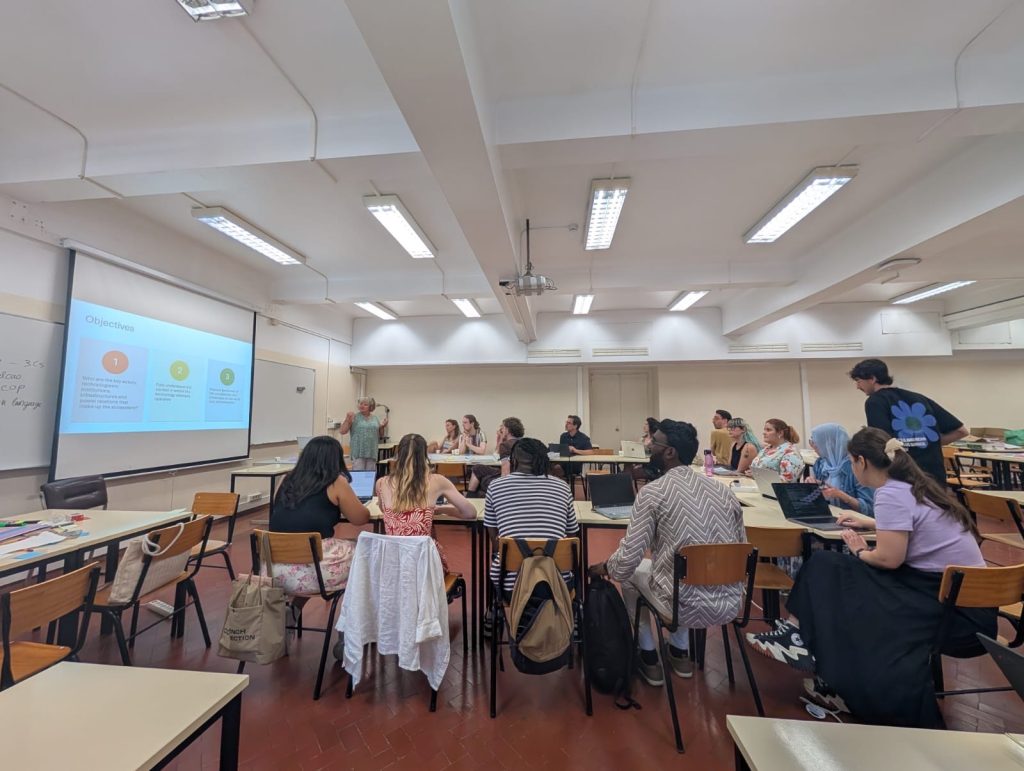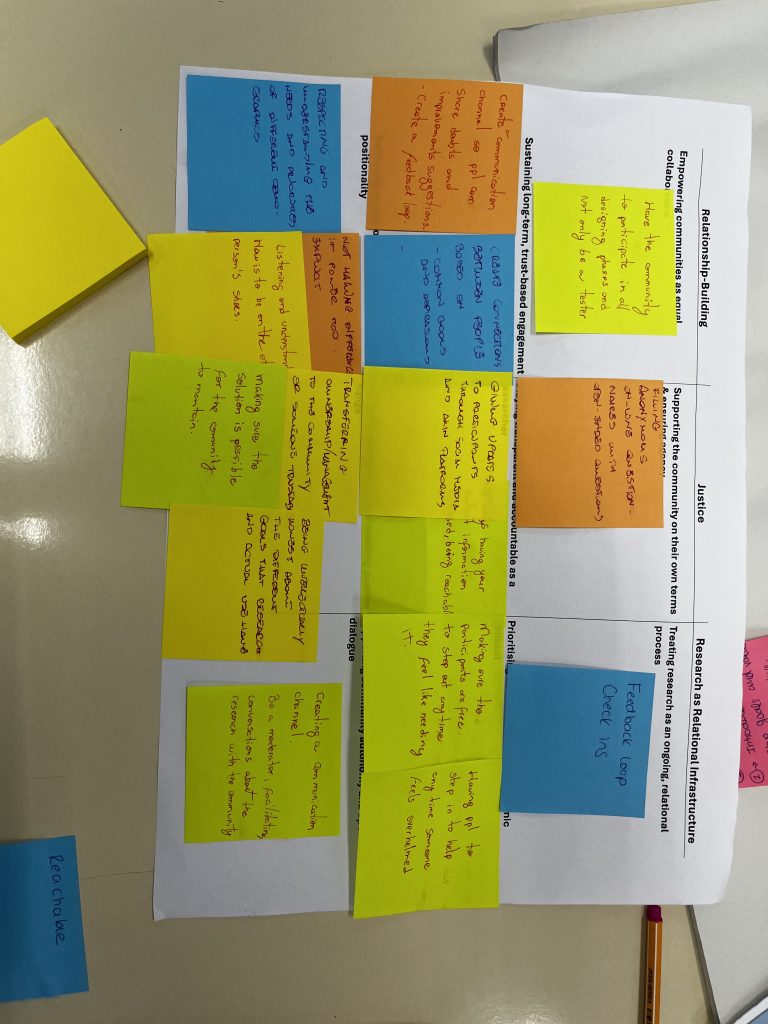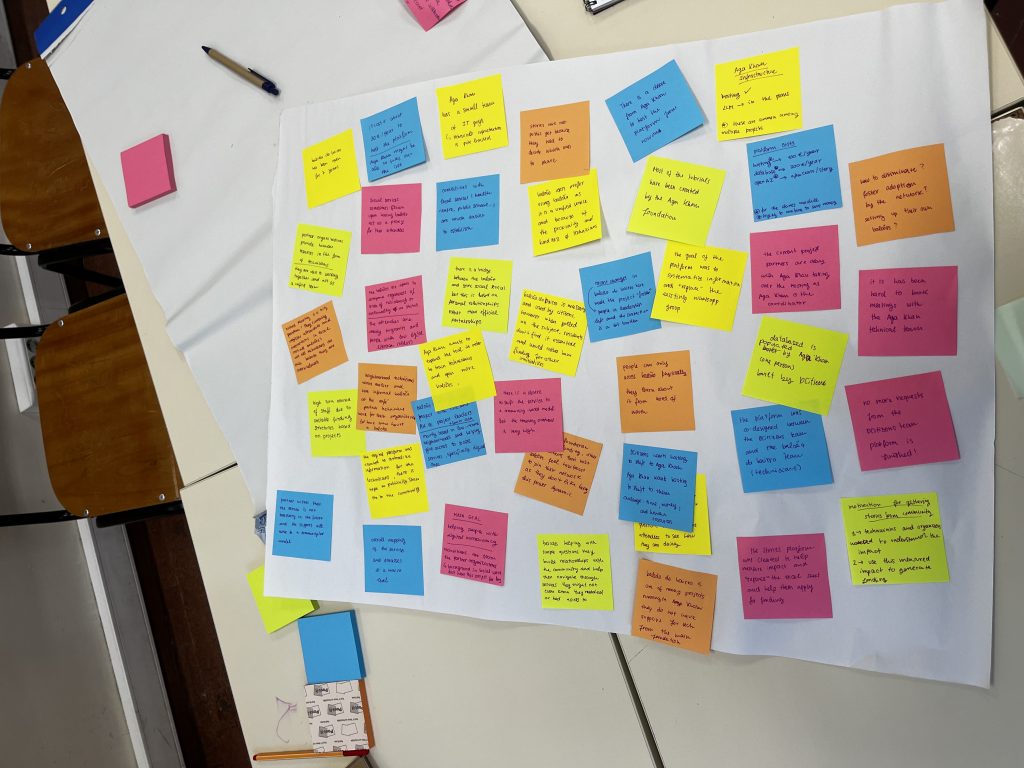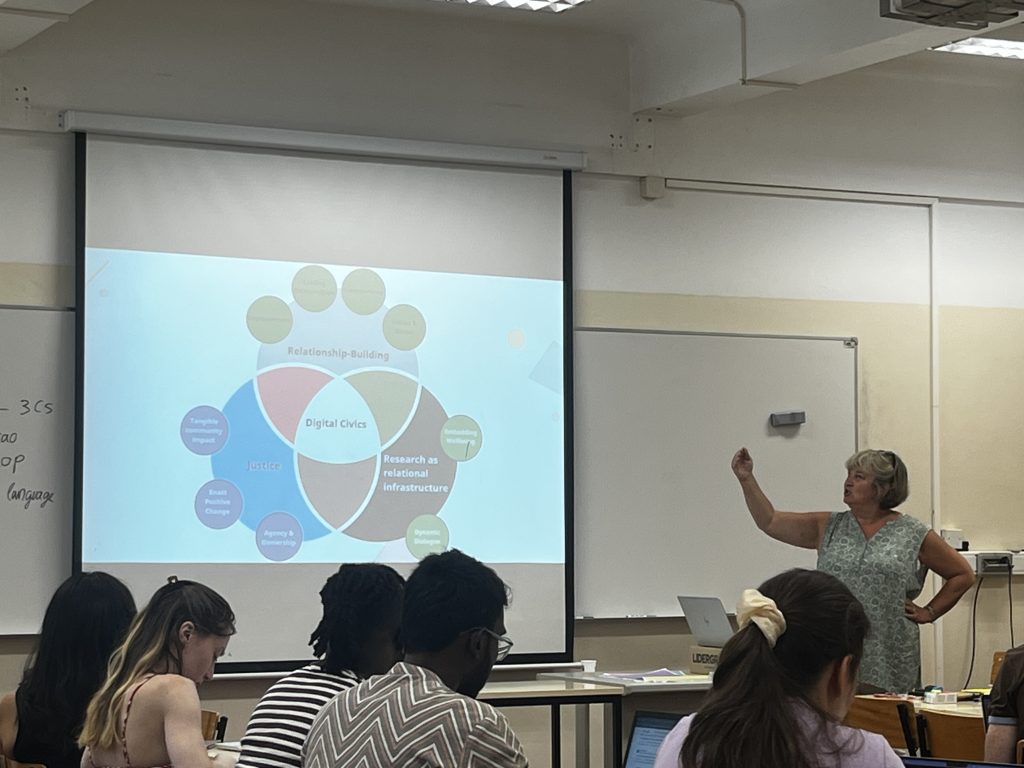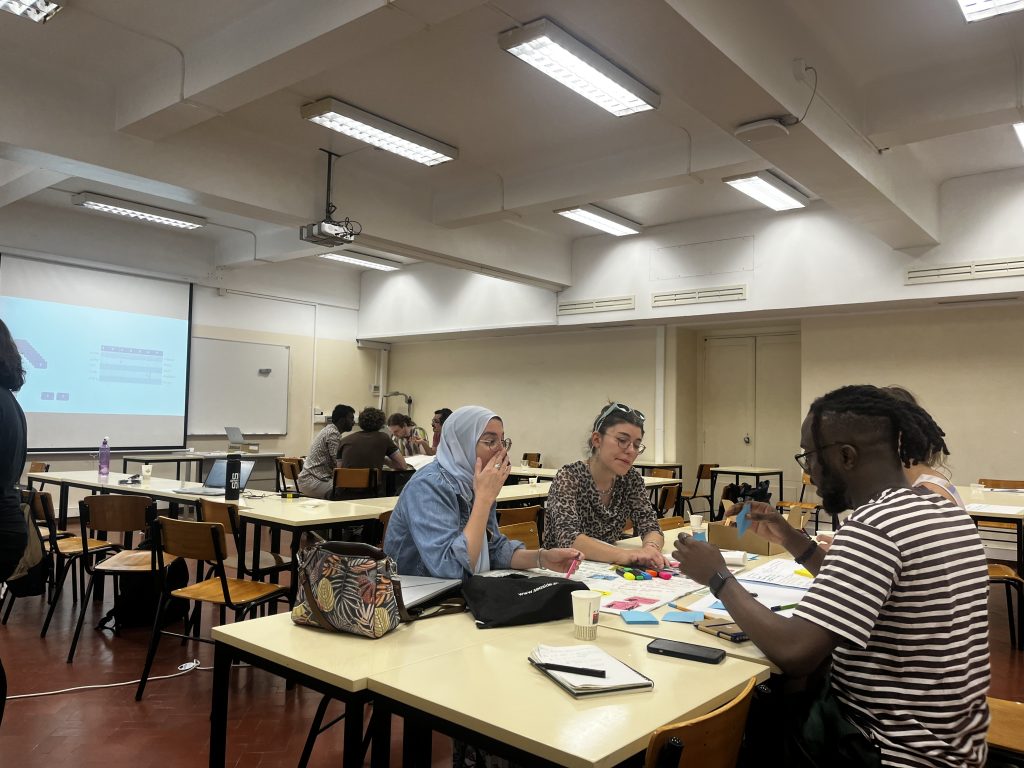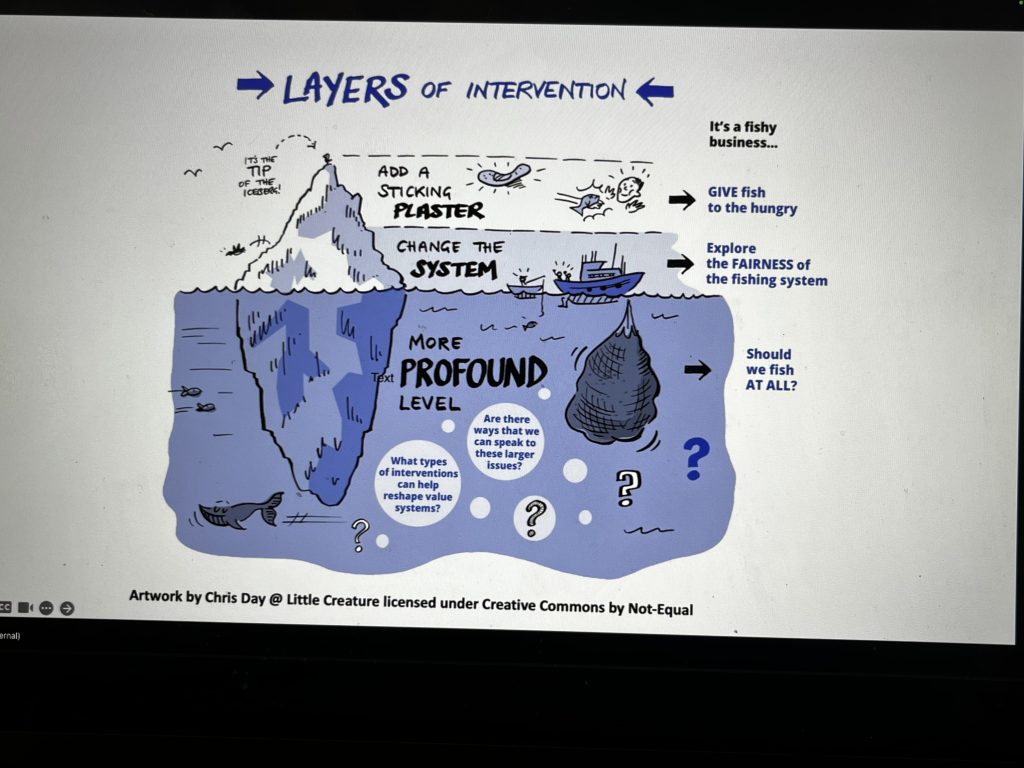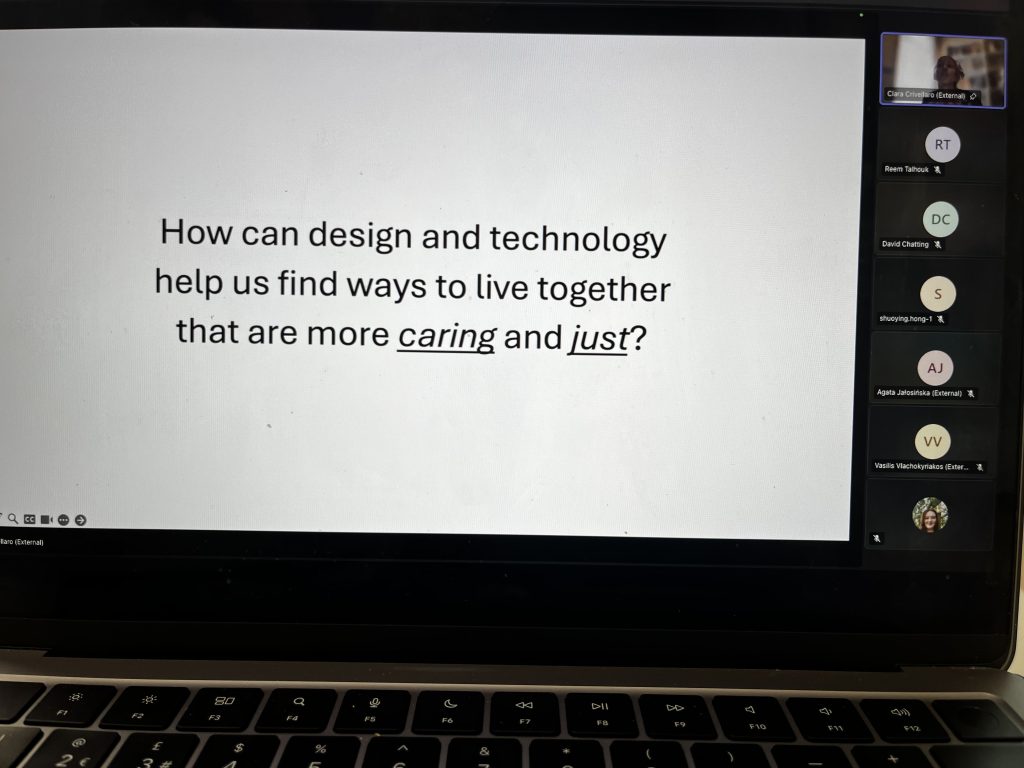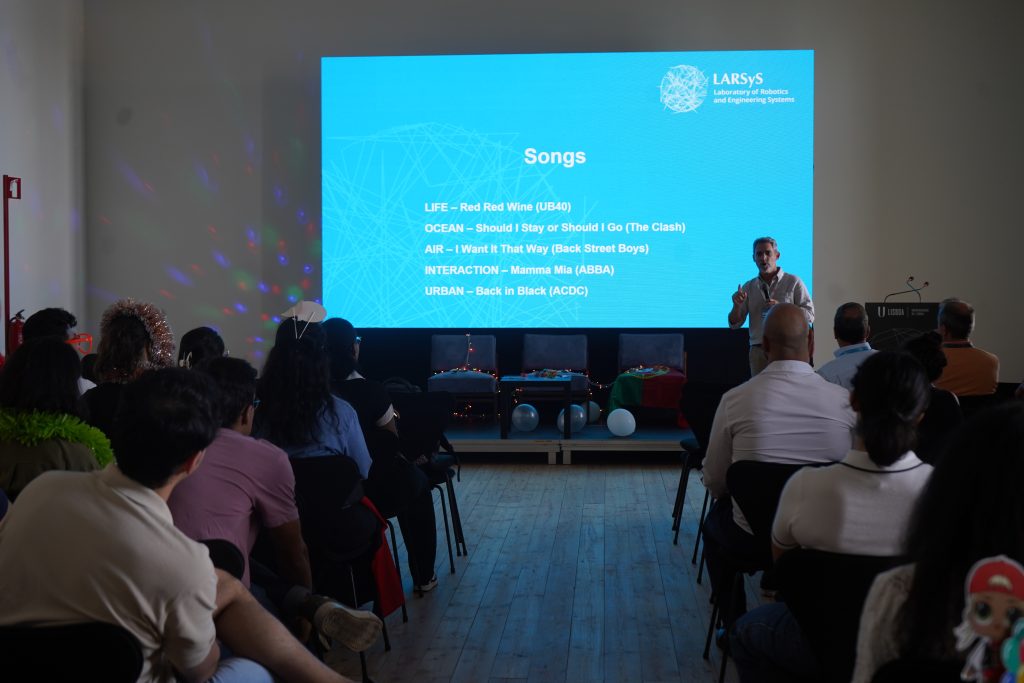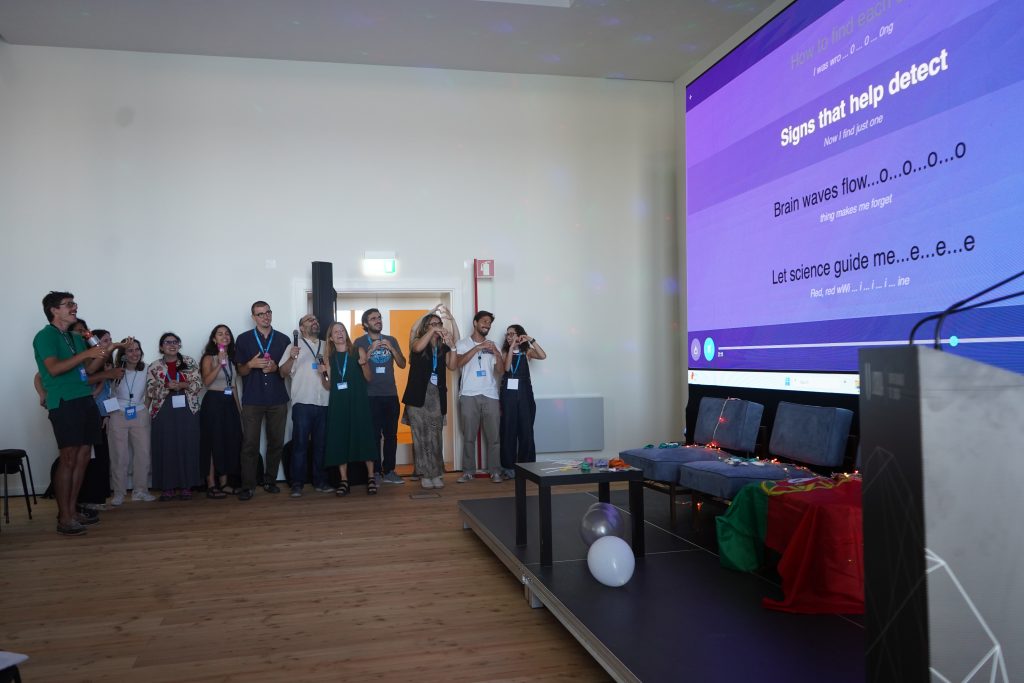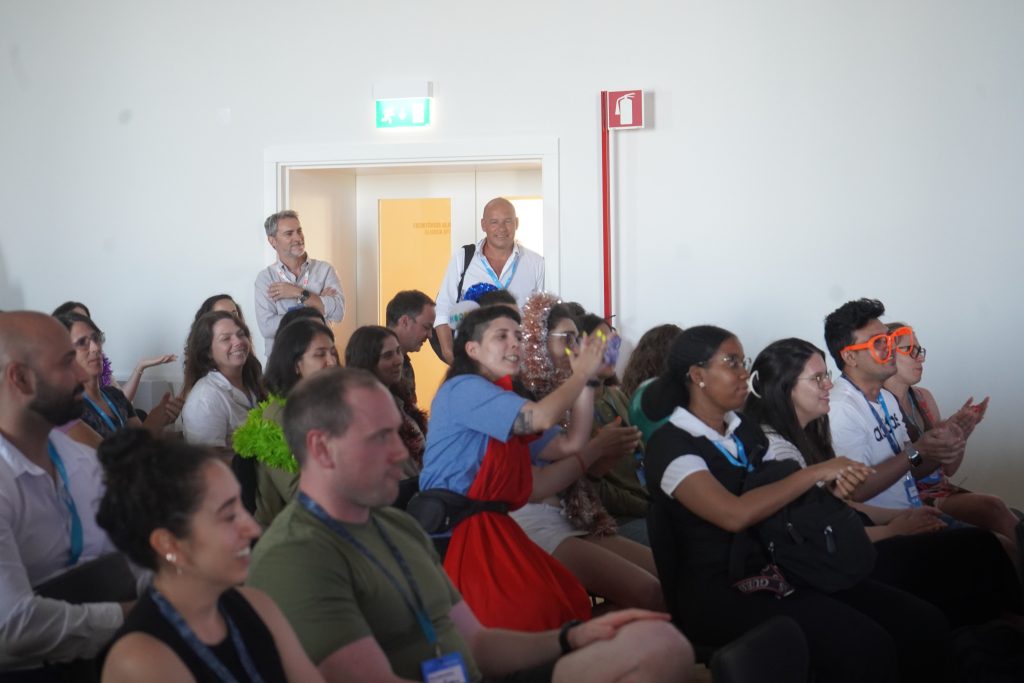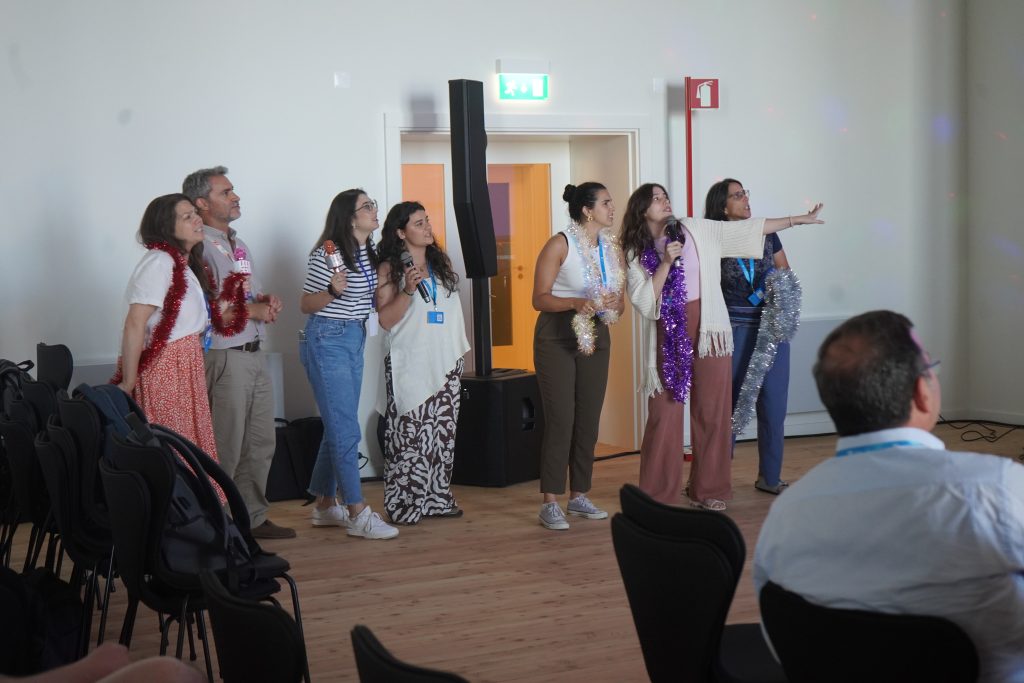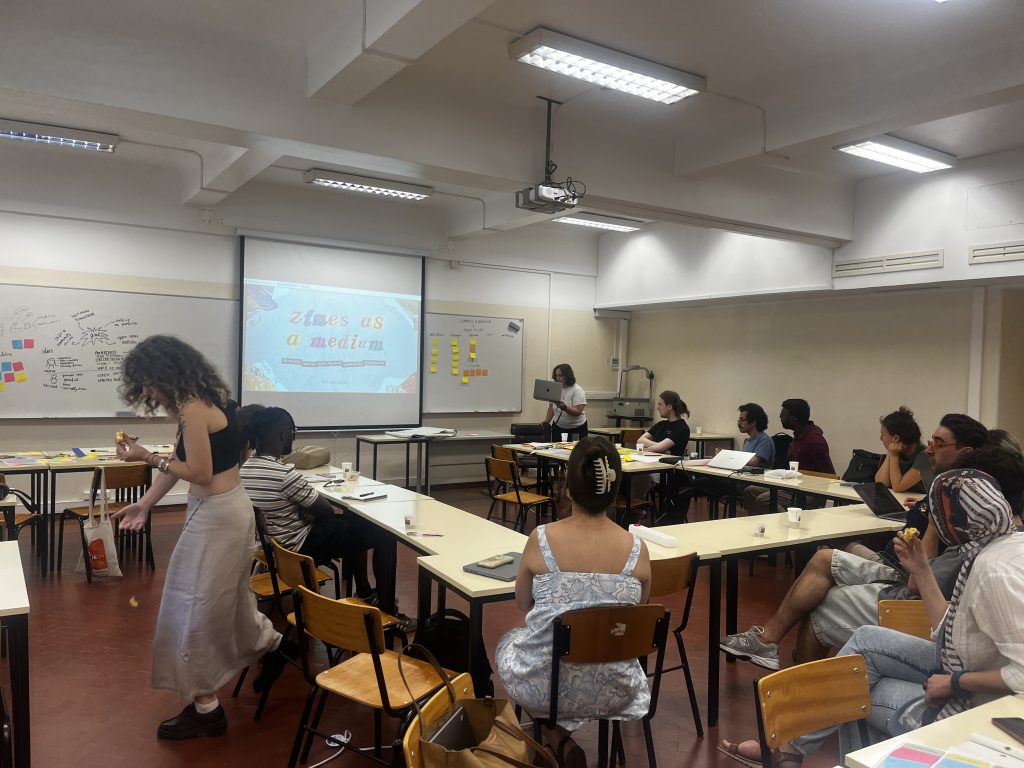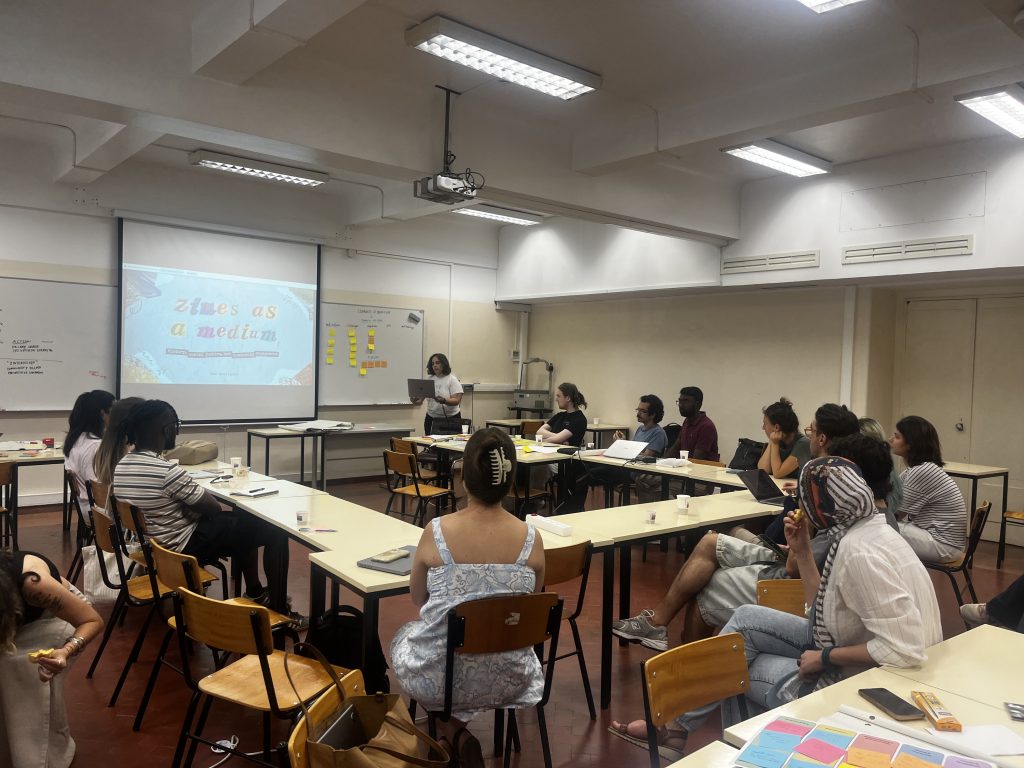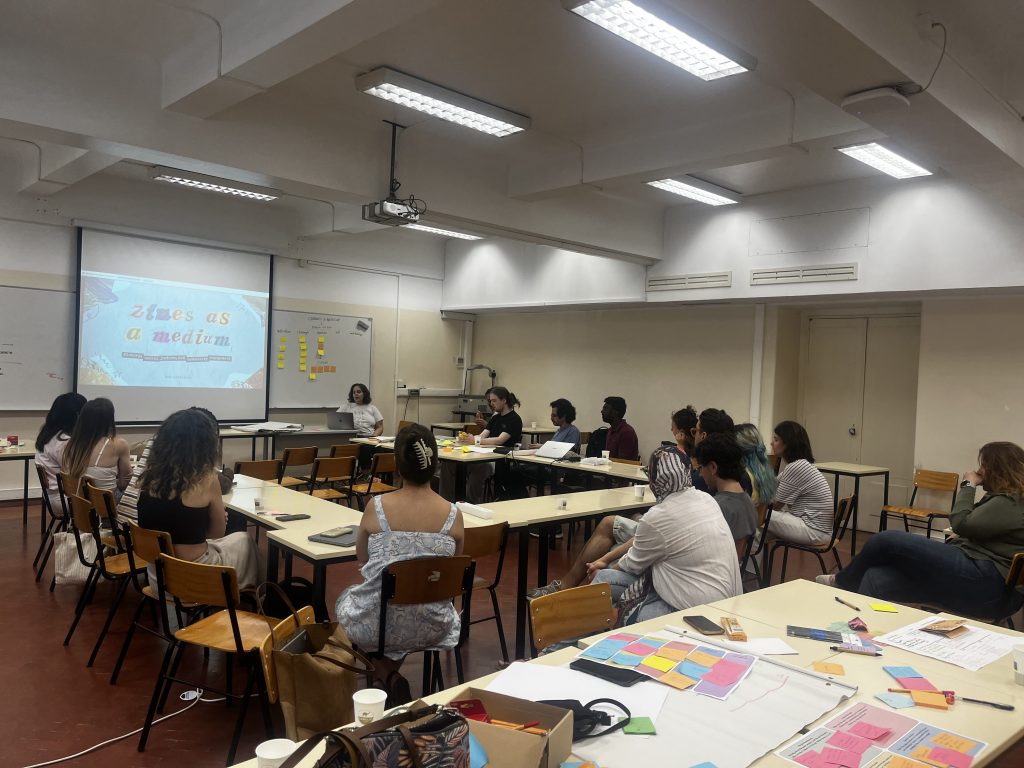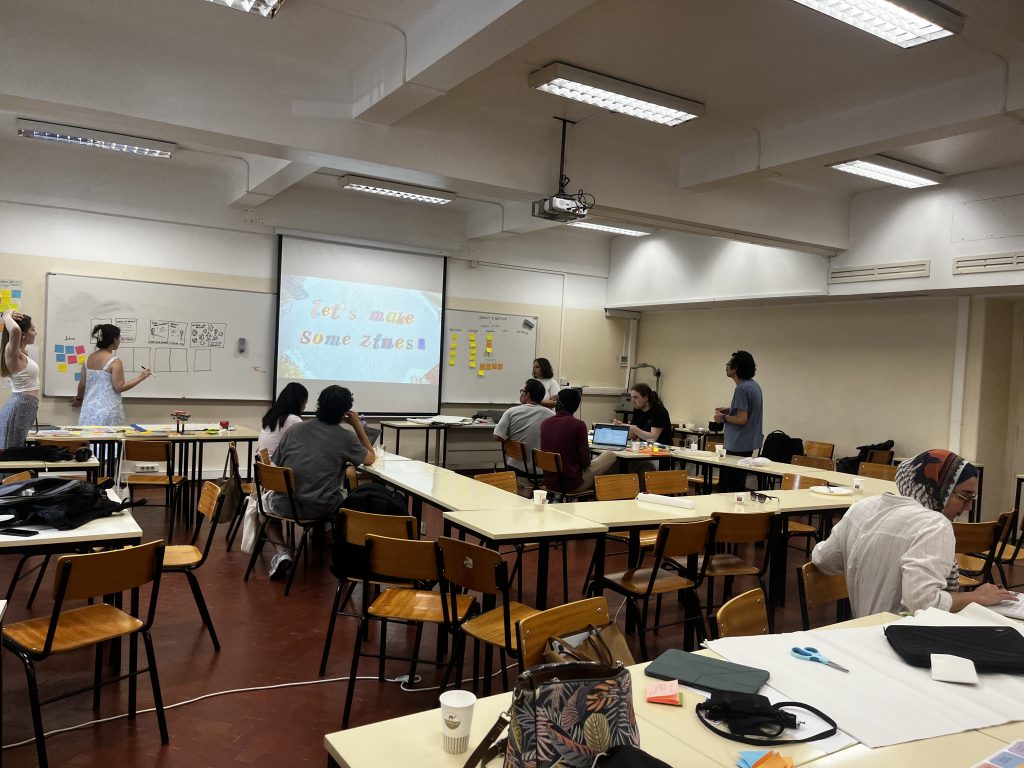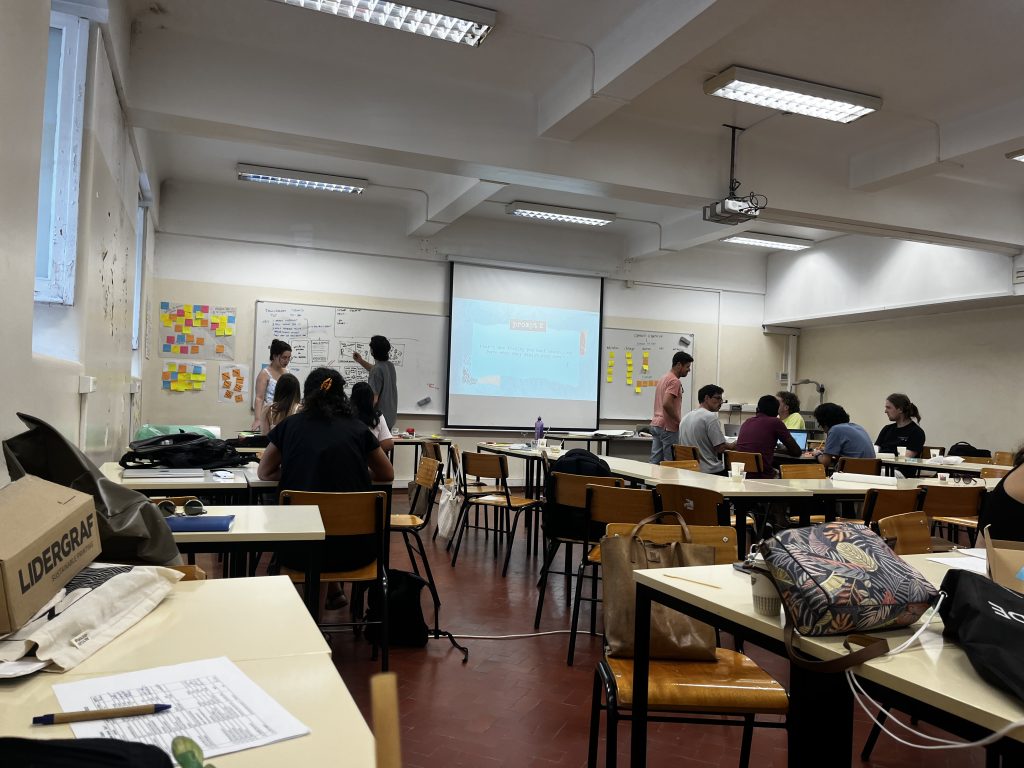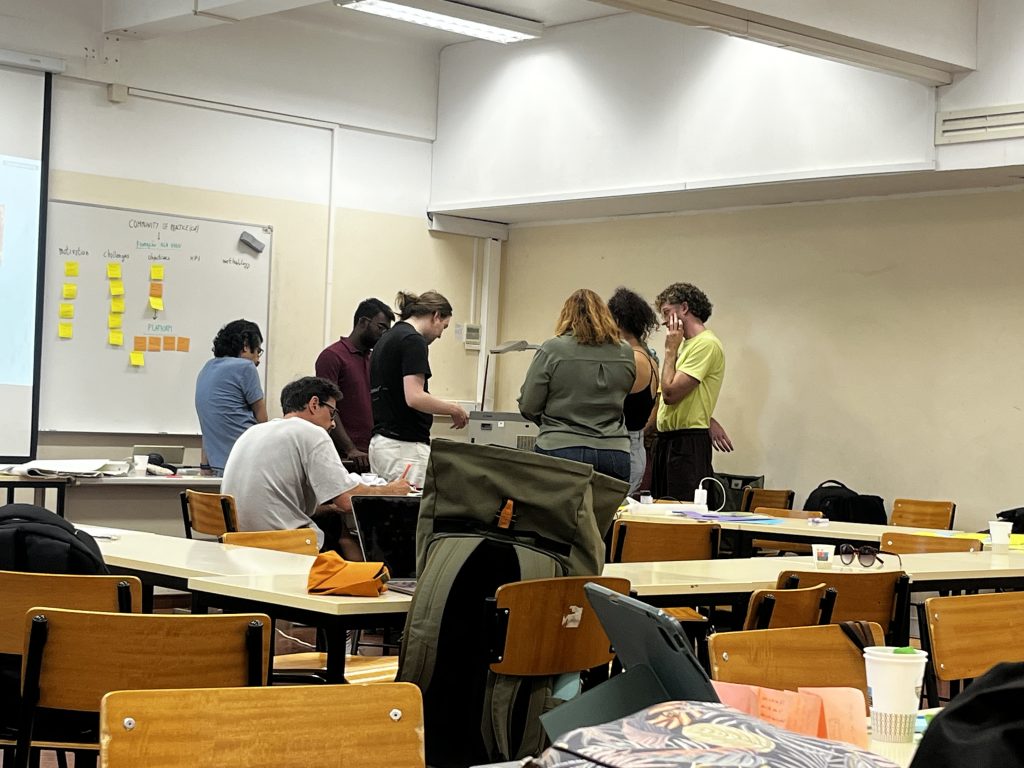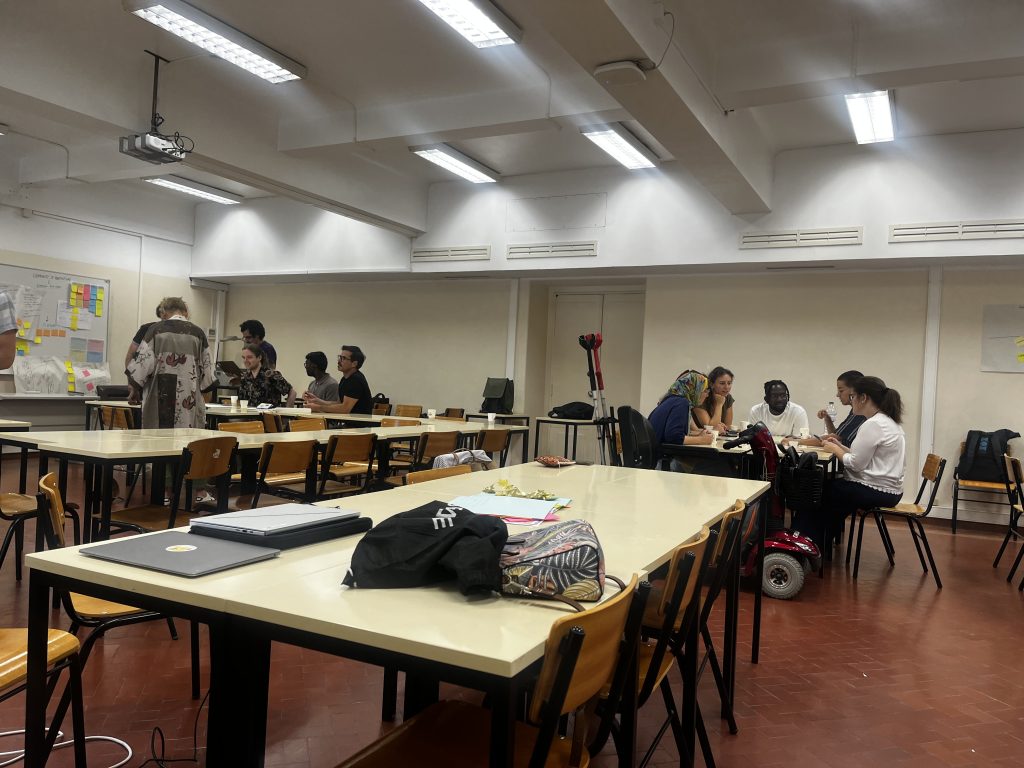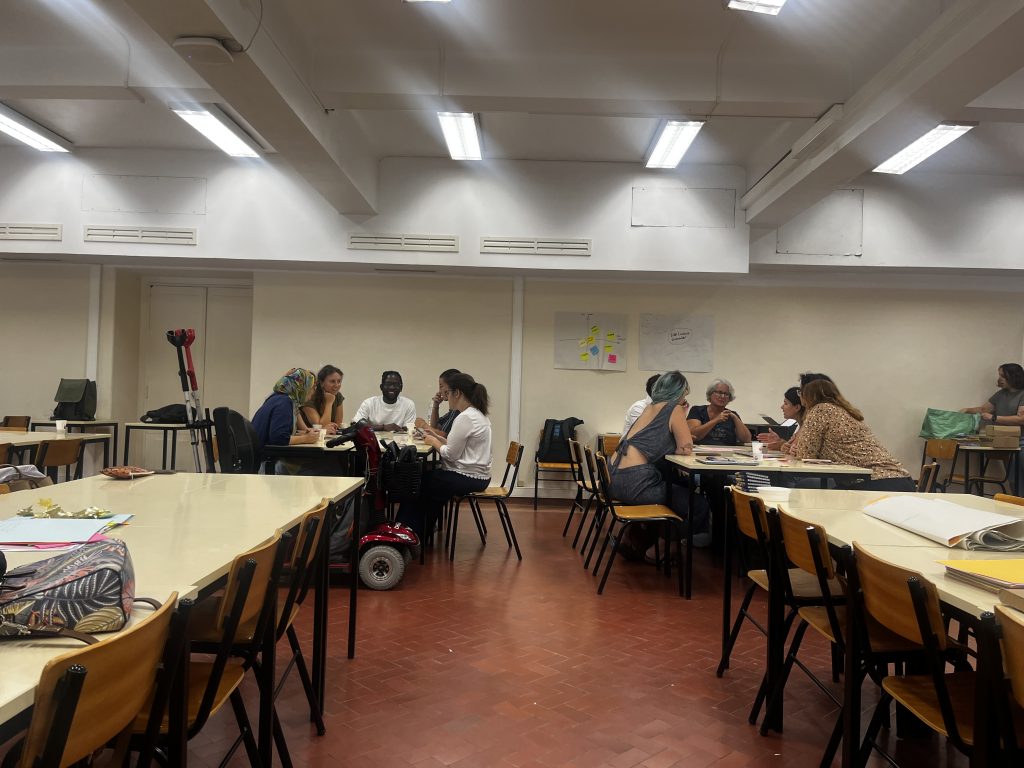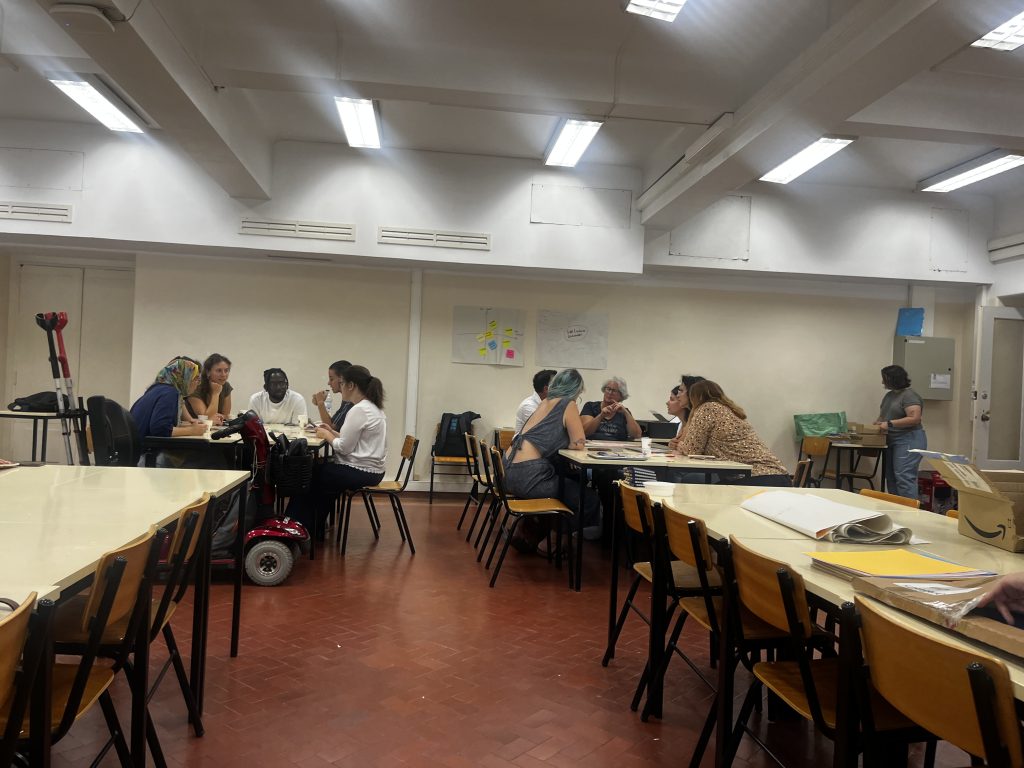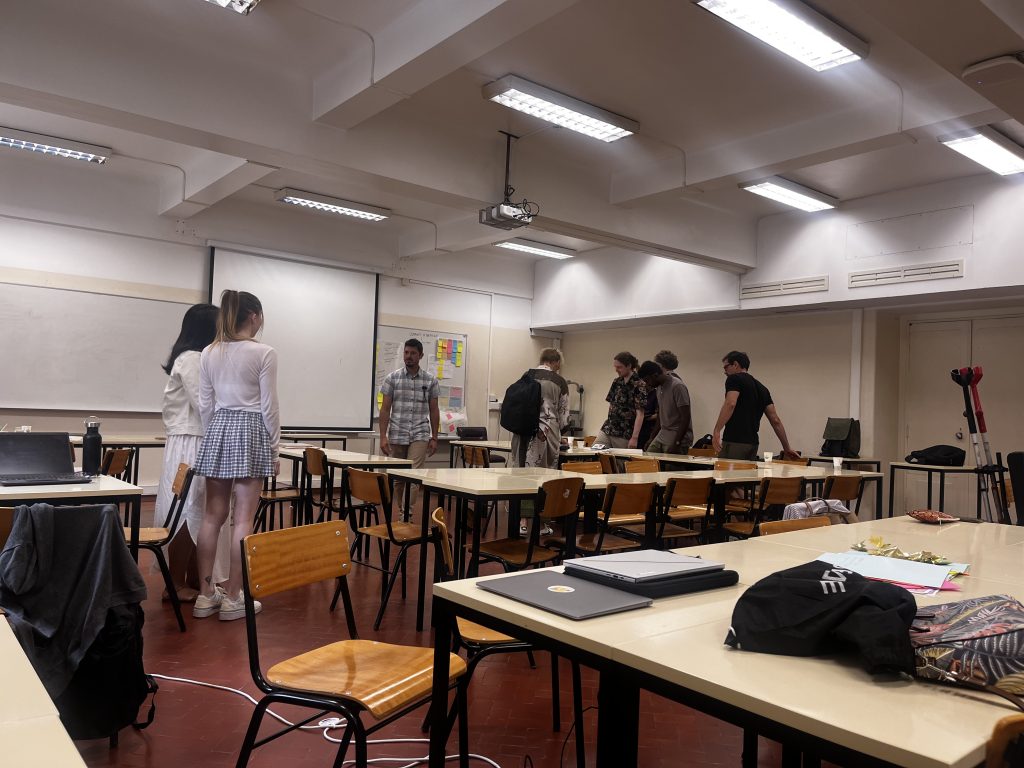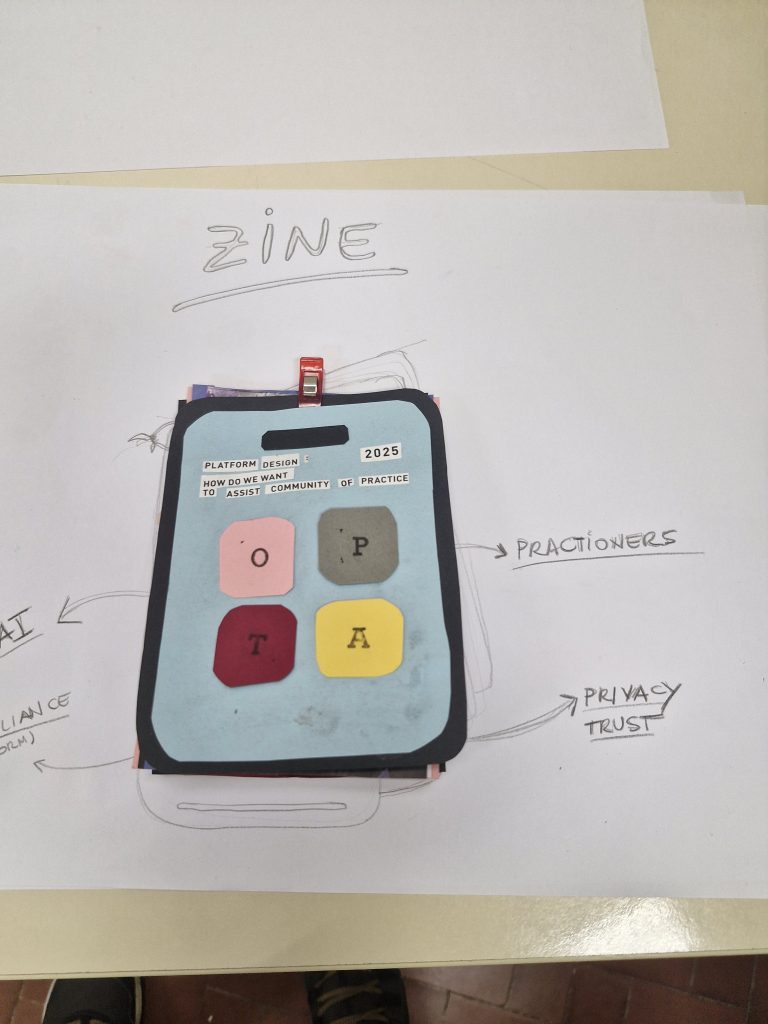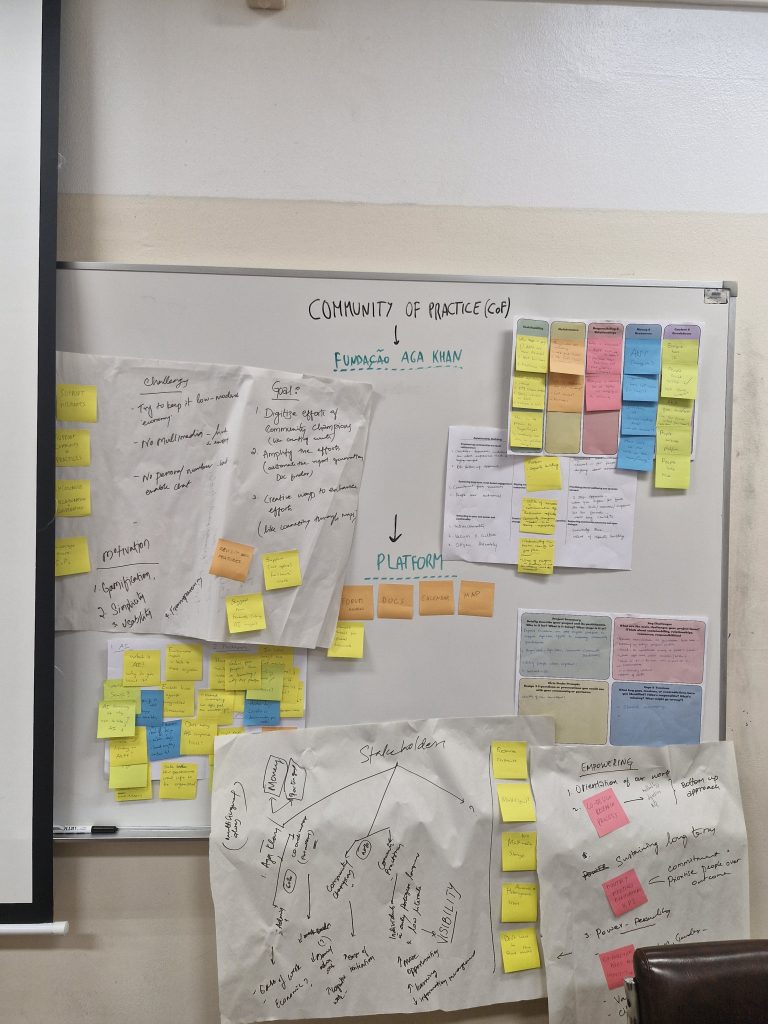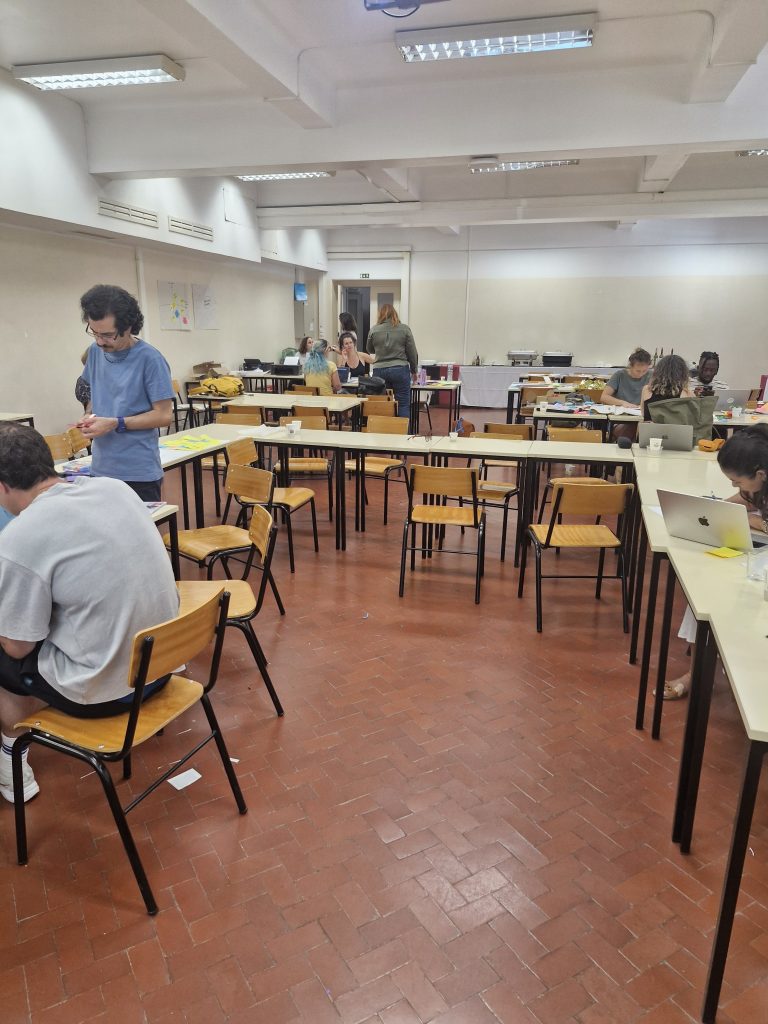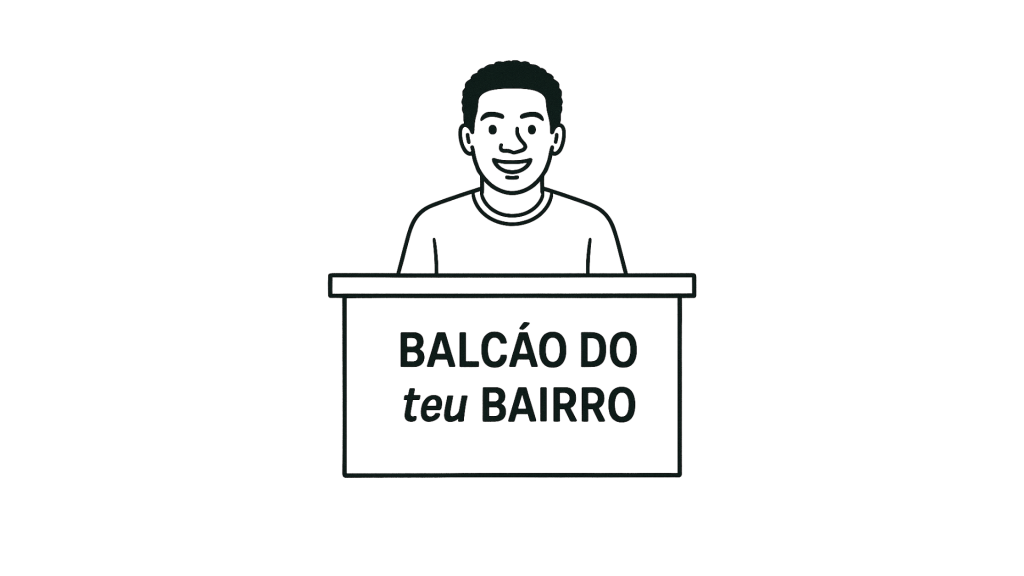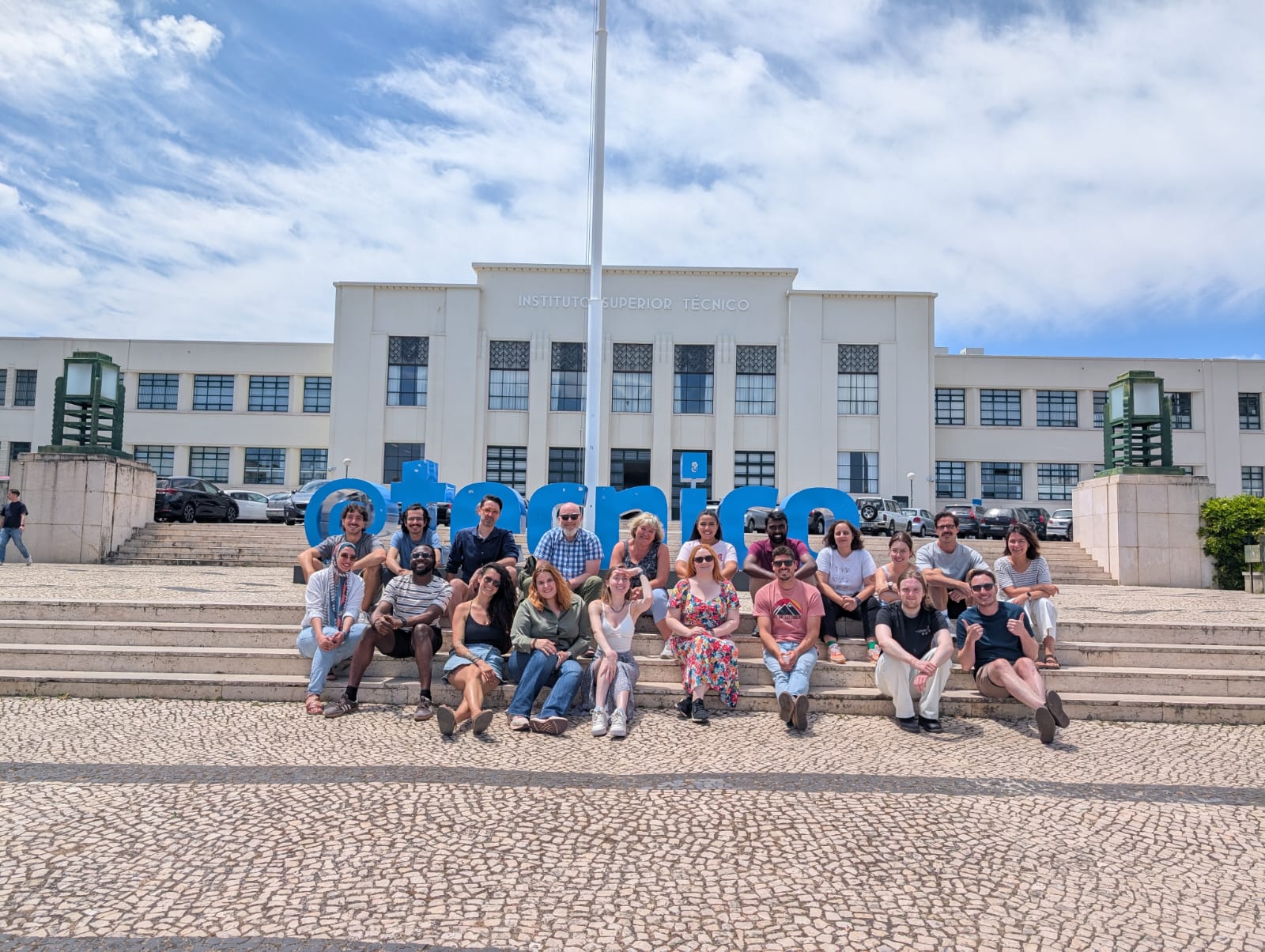
Day 1: Building Communities, Breaking (and Making) Collaborations
The day began with a warm welcome to the week from Prof Hugo Nicolau and Prof Kyle Montague and a fast-paced round of introductions. Through quick talks and informal conversations, we started getting to know one another — our backgrounds, interests, and motivations for being here. These early connections laid the foundation for what came next: the formation of four project groups, each focussed on one of four community projects working with the Lisbon DCitizens team:
- BALCÃO DO BAIRRO: SUPPORTING COMMUNITY SERVICE DESKS
- COMMUNITIES OF PRACTICE: INVESTIGATING THE ROLE OF AI
- POWERCHAIR FOOTBALL: SUPPORTING REAL-TIME COMMUNICATION
- DC-LGP: A COMMUNITY-DRIVEN: SIGN LANGUAGE DICTIONARY
In the afternoon, we shifted gears to a hands-on and incredibly thought-provoking session from Professor Matt Baillie Smith, who challenged us to think about the invisible economies of engaged research. Drawing on his experience across academia, activism, policymaking, and practice, Matt invited us to reflect on the value flows, power dynamics, and labour that underpin research relationships — and how these often remain unseen or unspoken. We started by exploring the difficult question: What breaks collaboration? Through discussion and shared experience, we identified common pitfalls — mismatched expectations, unclear roles, extractive relationships — before flipping the conversation: How do we build collaborations that work from the start? This was a valuable moment to develop shared vocabularies around trust, transparency, care, and accountability.
We ended the day on a lighter — but no less educational — note with a KaraokAI session. Participants performed their favourite karaoke tunes with lyrics rewritten from digital civics research papers. It was playful, insightful, and a perfect reminder that learning doesn’t always have to be serious to be meaningful.
We’re excited for what the rest of the week holds — and already inspired by the openness, creativity, and criticality the students are bringing into the space.
Day 2: Orientations, Mappings, Social Justice and the Futures of Civic Technology
Day 2 of the Digital Civics Summer School was rich with theoretical grounding, critical reflection, and future-facing exploration. Through a series of expert-led seminars and interactive sessions, participants continued to develop their community projects while deepening their understanding of what it means to do digital civics work that is grounded in justice, care, and critical engagement.
We began the day with an insightful seminar from Dr. Anna R. L. Carter, titled Orientating Digital Civics: How Digital Civics Positions Itself. Anna introduced key concepts that shape the field, encouraging students to frame their emerging projects through relational thinking, justice-oriented perspectives, and research as relational infrastructure. This session prompted participants to consider how their work not only responds to community needs but also how it positions itself within broader systems and power structures.
Next, Prof. Pam Briggs led a practical and reflective session on mapping the technological and human dimensions within participants’ projects. Through this process, students began to visualise the actors, processes, and ecologies at play — a vital step in understanding both the scope and the potential impact of their work.
Later in the afternoon, we had the pleasure of hearing from Dr. Clara Crivellaro, who delivered a powerful seminar on Social Justice and Resistance. Clara unpacked different ways that people define and enact resistance in the face of inequality, offering participants language and frameworks to think critically about the politics embedded in their own design and research practices.
We ended the day with a second session from Anna R. L. Carter, this time looking ahead to the next generation of civic technologies. Through a collection of civic design probes and speculative themes, Anna invited participants to consider challenges around maintenance, sustainability, resources, and contextual fit. This forward-looking exercise laid the groundwork for tomorrow’s zine-making session, where students will creatively reflect on the complexities of designing civic technologies in real-world settings.
Day 2 offered a powerful blend of theory and practice, helping participants sharpen their project focus while holding space for criticality, care, and imagination.
Day 3: Zine-Making as Critical and Creative Practice
We began the day with an engaging and insightful seminar from Ana Henriques, who walked us through the rich and radical history of zines. Ana traced their roots in punk, feminist, and queer movements — highlighting how zines have long served as a space for resistance, self-publishing, and community storytelling. This session grounded our making in a broader political and cultural context, reminding us that zines are not just artefacts, but tools for claiming voice, space, and agency.
With that foundation, the rest of the day was dedicated to zine-making in practice. Participants explored a wide range of approaches — cutting, folding, collaging, sketching, printing, and layering both analogue and digital media. Each group began to develop zine pages that responded to their community projects and reflected on their experiences with civic technology, collaboration, and justice.
The zine-making process also became a space for critical reflection and peer-to-peer support. As students shared their in-progress work, they received constructive feedback and encouragement from one another, allowing space for new insights and reorientations to emerge. The informal, tactile nature of the medium invited experimentation and vulnerability — enabling participants to express complex or unresolved ideas in creative and personal ways.
As we wrapped up the day, participants began preparing their zines for final edits and assembly tomorrow. We’re excited to see how these reflections and stories come together into a collective publication — and how zines might continue to live on as part of their ongoing research practice.
Day 4: Final Edits, Civic Conversations, and Wrapping Up
Our final day of the Digital Civics Summer School brought together all the energy, thoughtfulness, and creativity that had built up over the past week.
The morning was spent making final edits to zines — a quiet buzz of cutting, folding, annotating, and assembling filled the room as students refined their work. These zines captured the week’s learning, challenges, insights, and provocations. Each one was unique: a personal and political artefact reflecting on themes of justice, collaboration, research practice, and community engagement.
Later in the day, we welcomed community members and guests into the space. Rather than formal presentations, the zines served as civic design prompts — starting points for rich, informal discussions. Gathered around tables, students shared their work, sparking conversations about lived experience, sustainability, care, access, and futures of civic technology. The zines invited not only interpretation, but dialogue — acting as bridges between research and community perspectives.
It was a fitting way to close: collective, conversational, and grounded in the values of participation, reflection, and relationality that had shaped the summer school throughout.
Thank you to everyone who contributed, collaborated, shared, and supported.
